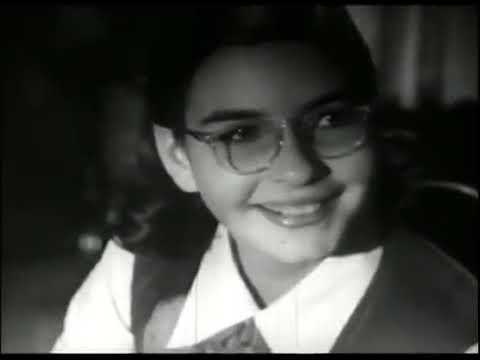Kurikulum LU 1 - mengapa kurikulum perlu diadaptasi
Summary
TLDRThis video script discusses the importance of adapting national curriculums to fit the diverse contexts of individual schools. It highlights the challenges in implementing a one-size-fits-all curriculum and uses the example of a school in a coffee plantation to illustrate how local environments can be integrated into teaching, making learning more meaningful and connected to students' lives.
Takeaways
- 📚 The script discusses the importance of adapting the national curriculum to the diverse contexts of individual educational units.
- 🌐 It highlights the challenges of implementing a one-size-fits-all curriculum in classrooms with different backgrounds and ecosystems.
- 🏫 The story of Pak Haryanto, a school principal, illustrates the shift from strictly following textbooks to incorporating local context into teaching.
- 🐸 An example is given where a teacher uses marine animals from a textbook to explain ecosystems, prompting the idea to use local fauna for more relatable lessons.
- 🌱 The school's location in a coffee plantation leads to the idea of using local flora and fauna to make lessons more meaningful and connected to students' lives.
- 🤔 Pak Haryanto contemplates the benefits of adapting the curriculum to better suit the students' environment and experiences.
- 📈 The script emphasizes the need for a curriculum that is not only geographically but also culturally and sociologically relevant to the students.
- 🔍 It details the process of curriculum development, starting from understanding the national education goals to analyzing the students' needs and school conditions.
- 📝 The development of a School-Based Curriculum (AOSP) is discussed, which involves all stakeholders to ensure it meets the educational goals and student needs.
- 👥 Collaboration among teachers and stakeholders is key in developing a living document that can be adjusted to fit the ever-changing needs of the students and community.
- 🌟 The ultimate goal of curriculum adaptation is to ensure that students develop in line with the times, with a curriculum that is close to their daily lives and can be further developed and adapted.
Q & A
What is the main topic discussed in the script?
-The main topic discussed in the script is the importance of adapting the national curriculum to the local context of schools, especially in terms of their geographical and cultural environments.
Why is it challenging to implement the national curriculum in a diverse educational context?
-It is challenging because the national curriculum needs to be adapted to the specific needs and conditions of each school, which can vary greatly depending on factors like geographical location, cultural background, and the local community.
What is an example of adapting the curriculum to the local context?
-An example given in the script is using local animals found in a coffee plantation to teach about ecosystems in an environmental science class, making the learning more relatable and meaningful for the students.
Who is Pak Haryanto and what role does he play in the script?
-Pak Haryanto is the principal of SDN Gunung 01, a school located in the middle of a coffee plantation. He plays a key role in recognizing the importance of curriculum adaptation and leading the initiative to develop a school-based curriculum.
What was the initial approach of Pak Haryanto and his colleagues in teaching?
-Initially, Pak Haryanto and his colleagues would teach strictly according to the textbook, without considering the local context or the relevance of the content to the students' lives.
What prompted Pak Haryanto to rethink his teaching approach?
-Pak Haryanto was prompted to rethink his teaching approach when he observed a colleague teaching about ecosystems using examples from the ocean, which were not relevant to their location in a coffee plantation.
What is the significance of adapting the curriculum to the local environment?
-Adapting the curriculum to the local environment makes learning more meaningful and relatable for students. It helps them connect what they learn in school with their everyday lives and the world around them.
What is AOSP and how does it relate to the curriculum adaptation discussed in the script?
-AOSP stands for 'Ajar Oleh Siswa' or 'Taught by Students' in English. It is a teaching method that involves students in the learning process, making it more interactive and relevant. In the context of the script, AOSP is part of the school's curriculum adaptation strategy to make learning more engaging and connected to the students' environment.
What are the key components of the national curriculum framework that the school needs to consider when adapting the curriculum?
-The key components include the national education goals, the student profile, the curriculum structure, learning principles, assessments, and learning outcomes.
How does the school plan to integrate the school vision into the curriculum adaptation process?
-The school plans to integrate the vision of producing smart, ethical, responsible, and environmentally conscious students into the curriculum adaptation process, ensuring that the curriculum not only meets academic standards but also aligns with the school's values and goals.
Outlines

This section is available to paid users only. Please upgrade to access this part.
Upgrade NowMindmap

This section is available to paid users only. Please upgrade to access this part.
Upgrade NowKeywords

This section is available to paid users only. Please upgrade to access this part.
Upgrade NowHighlights

This section is available to paid users only. Please upgrade to access this part.
Upgrade NowTranscripts

This section is available to paid users only. Please upgrade to access this part.
Upgrade NowBrowse More Related Video
5.0 / 5 (0 votes)





